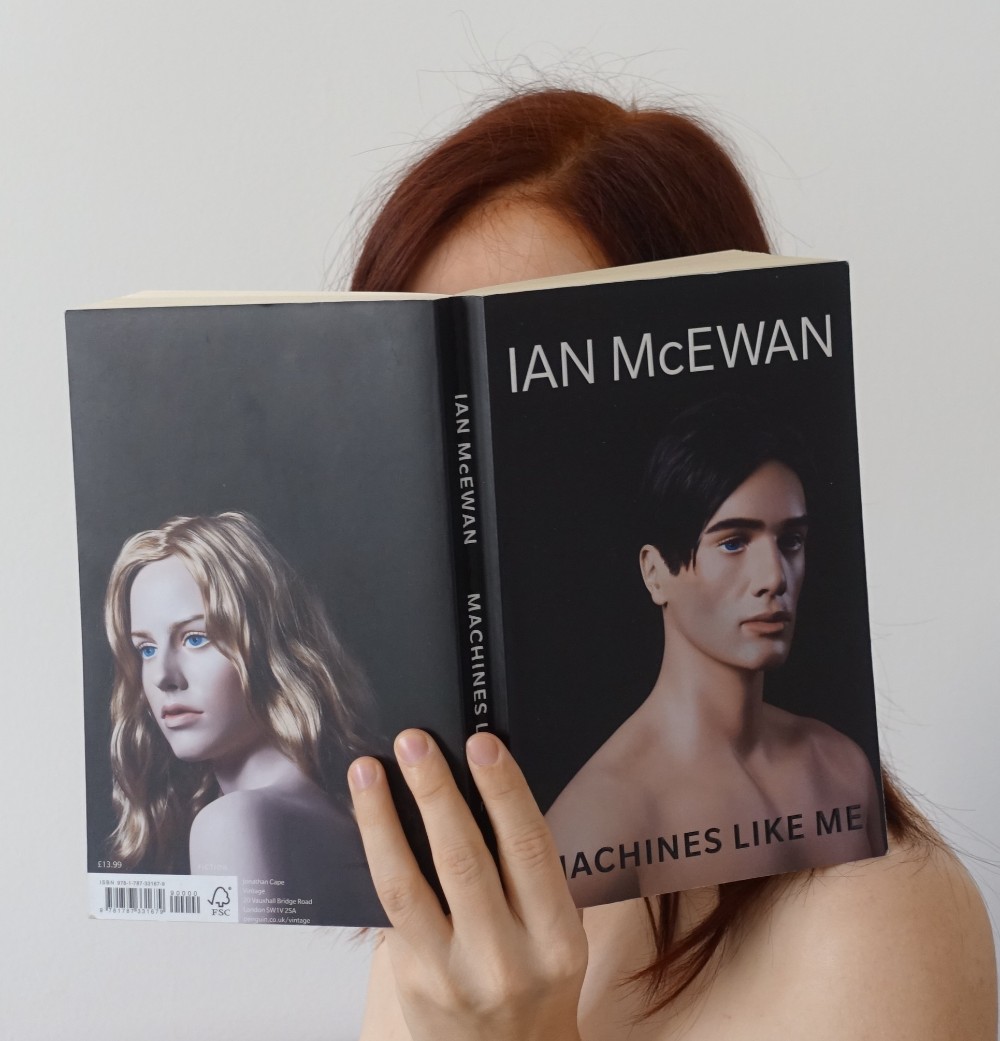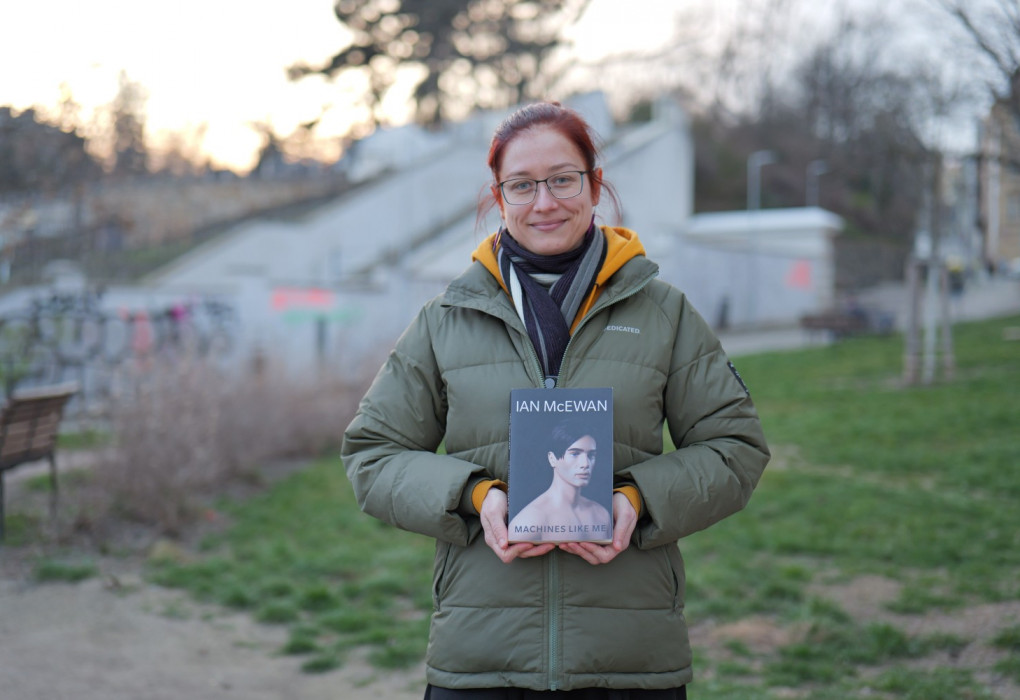I wrote the following review after reading Machines Like Me for the first time, in May 2019.
One of the things I love most about McEwan is his atheism. Through his characters, he’s looking for ethical principles that are valuable for their own sake, not as something imposed or wished for and rewarded by a god. In Machines Like Me, he explores the essence of consciousness by contrasting two human protagonists with their new possession – a robot with artificial intelligence and something that seems very much like consciousness. McEwan presents us with a materialist philosophy that isn’t degrading to living beings. On the contrary, it appreciates the unmodelable complexity of the human brain and the mysteries of mind.
Before I started reading the book, I hadn’t understood what purpose the “alternative history” setting was supposed to serve. The only alternative history novel I can remember reading is Ishiguro’s The Buried Giant and, even though I loved it, to this day I’m not sure I’ve gotten what the changes to Britain’s Middle Ages in that book were about. But once I started reading Machines Like Me, the benefits became apparent. Firstly – as McEwan said himself in an interview I listened to – the novel loses a predictive quality. If he had set the book let’s say twenty years from now, once that time came, his ideas about the state of technology etc. might seem ridiculous and the comparison of his mistaken predictions with reality might distract from the philosophical content of the novel. Having decided to change history instead, he could let his imagination run free without the fear of being seen as making daring predictions about the future.
Secondly, and more importantly, this concept allows McEwan to criticize both historical events (e.g. the Falklands War) and current affairs (e.g. Brexit) in a subtle and amusing way. McEwan’s version of events is neither dystopian nor utopian – some things are better while others worse. The undoubtedly best thing in this alternative history is the long and productive life of Alan Turing, who is the real hero of the novel (the two human protagonists are definitely no heroes) and delivers the best quotes – several pages long.
The only potential downside is that the author sometimes seems to have gotten carried away when he was imagining what could have been. Readers who are impatient to know what happens next in the story might get bored by lengthy factual accounts of (fictional) developments in politics, economy etc.
My personal disappointment with the novel is that it had a “vegan” potential that was left unfulfilled. For me as a vegan, certain passages in the text were necessarily heading towards important conclusions about animal rights, but the author always stopped short of mentioning animals at all (except for one rather lame mention of pet dogs). McEwan seems much more interested and invested in the rights of machines than those of fellow living beings. I’m all for protecting individuals with artifical sentience, but why should they get protection while so many individuals with biological sentience do not?
Despite this objection, I count the novel among those I want to come back to, again and again.



_thumbnail.png)

_thumbnail.png)
_thumbnail.png)